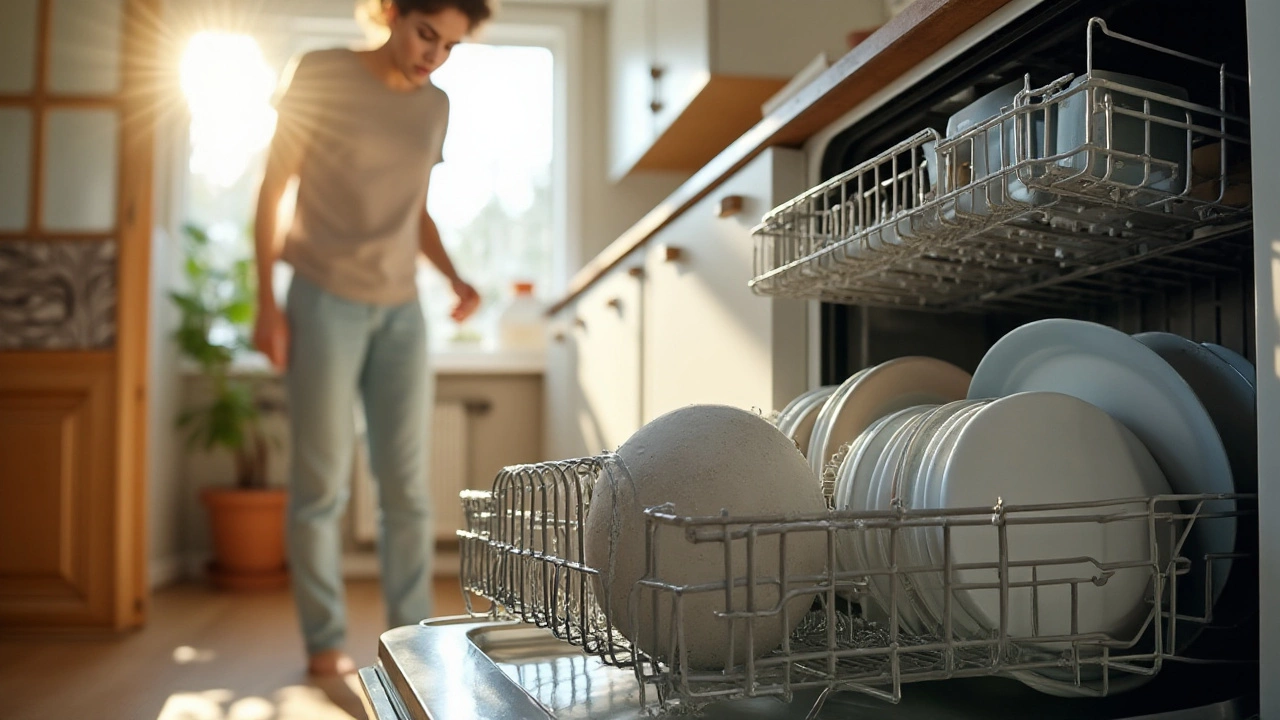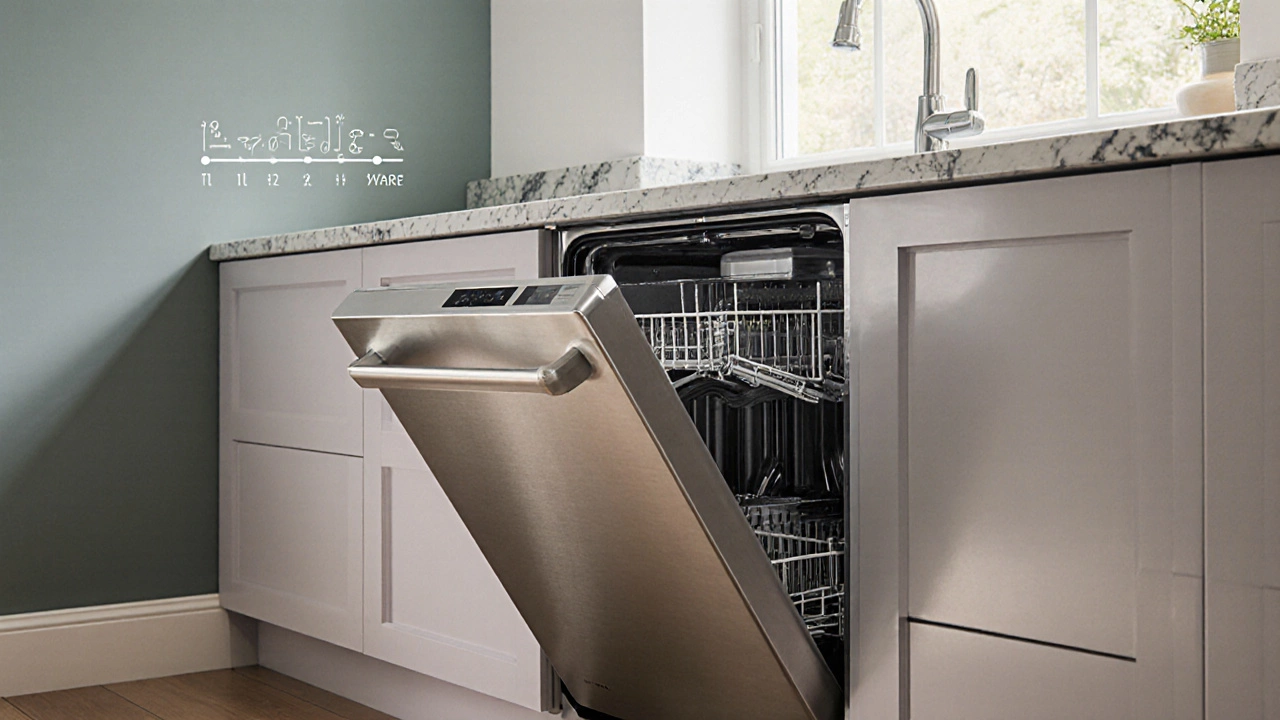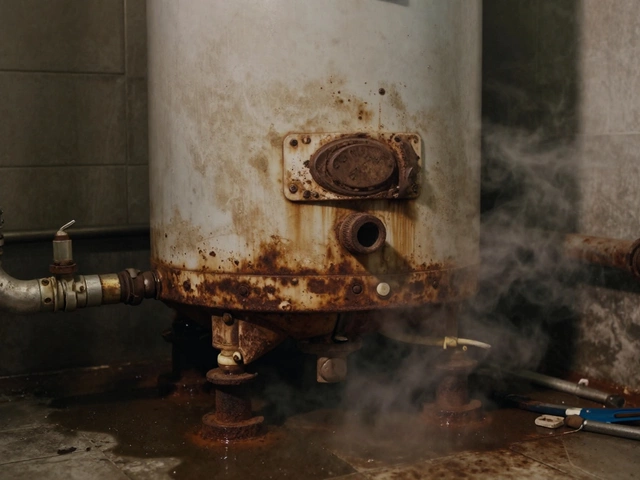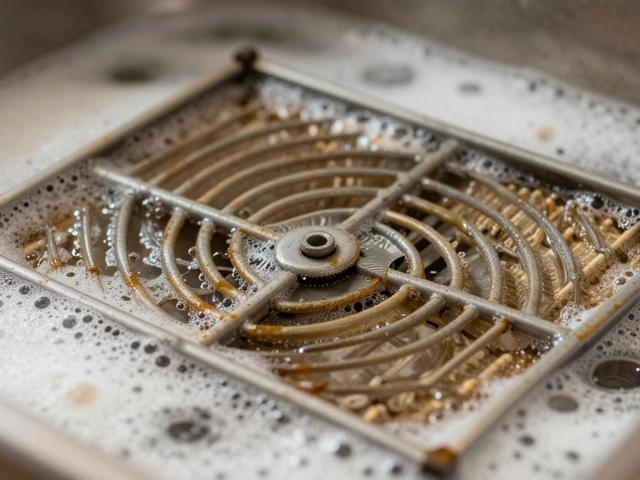Dishwashers have become an indispensable part of modern kitchen routines, taking care of those dirty dishes with a simple push of a button. However, like any appliance, they can encounter their fair share of issues. Whether it's a lukewarm rinse or a puzzling leak, facing dishwasher troubles can be frustrating. Knowing the common problems can empower homeowners to fix minor faults themselves and identify when it's best to call in the professionals.
In this guide, we'll dive into the most common faults plaguing dishwashers and equip you with essential tips for maintaining and troubleshooting your trusty kitchen helper. From blockage issues to more technical glitches, understanding what could go wrong is the first step towards a well-functioning appliance and a stress-free dishwashing experience.
- Understanding the Basics of Dishwashers
- Recognizing Common Faults
- Troubleshooting Techniques
- Preventive Maintenance Tips
- When to Call a Professional
- Choosing the Right Dishwasher
Understanding the Basics of Dishwashers
Dishwashers are marvels of modern engineering that have transformed the way we handle kitchen chores. At its core, a dishwasher is an appliance designed to clean dishes, cutlery, and other kitchen utensils automatically, sparing us the time and effort required for manual scrubbing. The basic operation involves a few critical cycles: pre-rinse, detergent wash, rinse, and drying. Depending on the model and brand, additional cycles such as sanitizing or delicate washes may be available, catering to varied dishwashing needs. Water usage in dishwashers is astonishingly efficient, with modern designs using as little as 3 to 5 gallons per cycle, which is considerably less than hand washing.
An essential component of a dishwasher is its spray arms, which rotate to distribute water evenly throughout the racks. These spray arms are powered by a motor-driven pump that effectively directs water through nozzles to reach all surfaces of the dishes. Both water temperature and dishwasher detergent play pivotal roles in achieving optimal cleaning results. The water needs to reach around 120°F to help dissolve food residues effectively, while the detergent must be compatible with the appliance to avoid corrosion or inefficient cleaning. It's paramount to load dishes correctly, ensuring that water can circulate freely, and preventing dishwasher faults related to blockages.
Another intriguing aspect of dishwashers is their energy efficiency. As opposed to handwashing, dishwashers typically consume less energy, especially when used with full loads. This is due to the insulated construction that retains heat and the precise control of water temperature, among other efficiencies. According to Energy Star, using a certified dishwasher can save an average of 3,870 gallons of water over its lifetime. Choosing the right dishwasher for your household depends not just on the features but also on size and energy ratings, which can impact long-term savings significantly. There’s a beauty in the simplicity yet complexity of these appliances, designed to seamlessly integrate into our fast-paced lives while providing convenience and efficiency.
"Major advancements in dishwasher technology have not only improved energy use but have also introduced sensors that automatically adjust cycles based on the load, enhancing both convenience and effectiveness," notes a report from the Consumer Technology Association.
Operating a dishwasher effectively isn't hard, but familiarity with its basic mechanisms can be helpful for troubleshooting. Filters play a key role in trapping food particles and should be cleaned regularly to prevent clogs that can lead to poor washing outcomes. Recent innovations include self-cleaning filters that minimize maintenance efforts. Regular cleaning of the dishwasher interior, including door gaskets and the drain area, can extend its lifespan, keeping it in top condition through countless cycles. Recognizing noises or irregularities during operation can be an early warning to address potential issues before they escalate into costly dishwasher repair
To sum up, understanding the fundamental workings of dishwashers not only enhances their utility but also elevates our appreciation for an appliance that tirelessly handles one of household life's most tedious tasks. From technical mechanisms to energy-saving prospects, a dishwasher's efficiency spans beyond its cycle, reflecting impressive engineering feats designed to fit seamlessly into modern lifestyles. This comprehensive knowledge forms the foundation for effective appliance troubleshooting, ensuring years of reliable service.
Recognizing Common Faults
Dishwashers, while a marvel of convenience, are not infallible. From persistent water spots to dishes still bearing yesterday's lasagna, they can sometimes fall short of delivering those sparkling results. One of the most common faults is a dishwasher repair issue where the appliance doesn't clean dishes effectively. This can often be traced back to clogged spray arms or a blocked filter. These parts are responsible for distributing water evenly across the racks, and when hindered, the wash cycles can't perform as desired. Regular cleaning of these components can prevent these issues, ensuring your dishwasher always operates at peak performance.
Another frequent fault involves the appliance not draining properly. Picture this: you've just completed a cycle, only to open the door and find the bottom of the machine flooded with murky water. This can be caused by a variety of factors, from a clogged drainage hose to a malfunctioning pump motor. In many cases, it could be a simple obstruction that needs clearing. Regular inspection of the hoses can mitigate the risk of blockages, while manufacturers often recommend replacing filters periodically to maintain efficiency.
Strange noises during operation are also a red flag. While some level of sound is expected, especially during certain cycles, unusual clunks or rattles usually signal a problem. It might be debris caught in the pump or foreign objects disrupting the spray arm's movement. Listening to your appliance and understanding what different sounds imply is crucial in early issue detection, often making the difference between a quick fix and a costly repair.
Leaks are another nuisance many encounter. A puddle around your dishwasher spells trouble and not just for your floors. Leaks can stem from several places: a worn door gasket, a defective water inlet valve, or even an improper installation. It's essential to routinely check the door seals for wear and tear and clean them to ensure a good seal every time you close the door. Ensuring that the appliance is leveled correctly can also prevent unintentional water spillages.
| Common Fault | Potential Cause | Basic Fix |
|---|---|---|
| Poor Cleaning | Clogged Spray Arms | Clean Spray Arms and Filter |
| No Draining | Blocked Hose | Clear Blockages |
| Noise Issues | Debris in Pump | Check and Clear Pump |
| Leaks | Worn Gasket | Replace Gasket |
"Proper maintenance not only prolongs the lifespan of dishwashers but also saves homeowners significant repair costs," advises appliance expert Mark Sheldon.Staying aware of these common issues and their symptoms is advantageous. While modern dishwashers are designed with multiple safeguards and sensors to alert users of possible failures, nothing beats the intuitive detection you can achieve by simply paying close attention to the appliance’s performance and addressing slight changes before they escalate into large-scale problems.
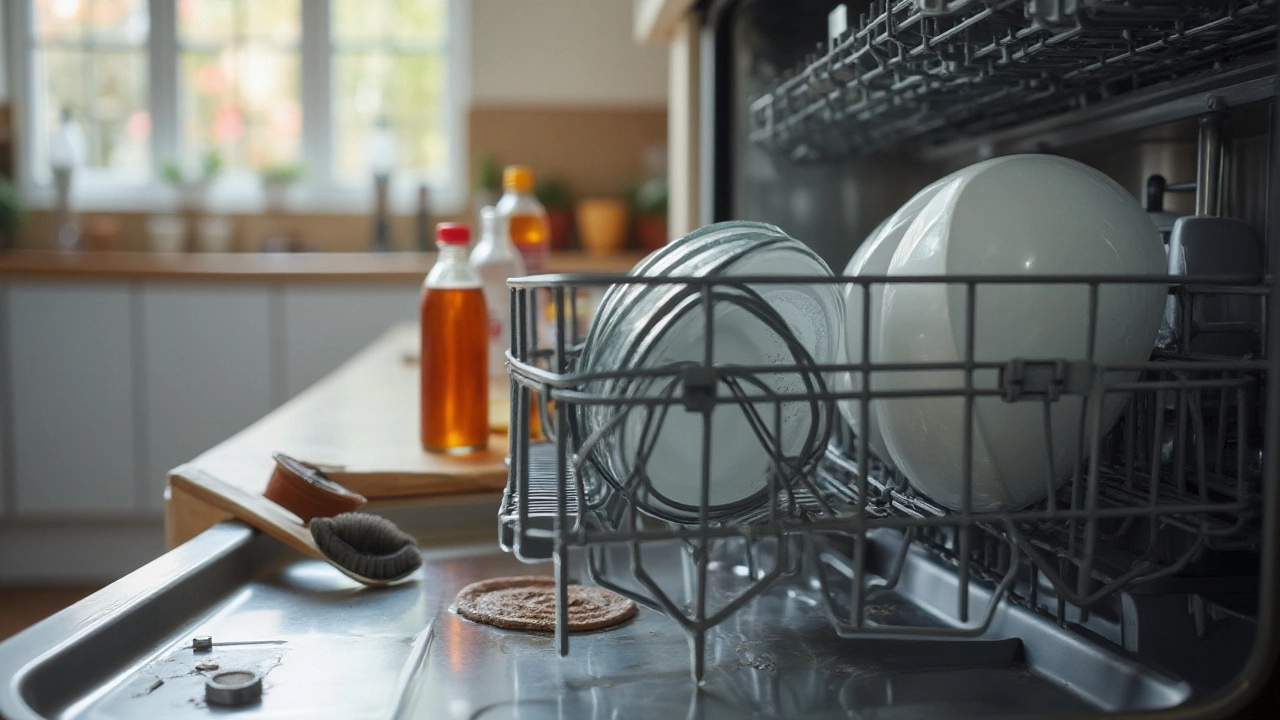
Troubleshooting Techniques
Troubleshooting a dishwasher can often feel like solving a mystery, where every sound, poor wash, and leak is a vital clue. Let’s delve into the common faults and how you can identify and address them effectively. First off, if your dishes aren't getting clean, it may be due to a clogged nozzle or spray arm. These essential components can be easily removed and checked for residual food debris. Ensure that they rotate smoothly and the holes are free of obstructions to allow water to spray effectively across the dishes.
Another frequent issue is the dishwasher not draining properly, often caused by a blocked filter or an obstructed drain pipe. If water pools at the bottom, check the filters first by removing them and giving them a good rinse. If the issue persists, examining the drain hose may help; this can be a bit fiddly since it often involves accessing the back of the appliance, but it's common for kinks or blockages to impede water flow.
A malfunctioning door latch can lead to water leakage and is usually a straightforward fix. Check to see if any crockery is blocking the closure, bending the door seal that ensures water stays inside the appliance. More technically, the latch mechanism might be worn out, requiring a replacement.
If your dishwasher smells terrible, it could be an indicator of hidden food scraps causing a stink. Regular cleaning of the food catchment and running an empty cycle with vinegar can efficiently neutralize any odors. Additionally, running regular maintenance cycles with a cleaning agent specifically meant for dishwashers can prevent bacteria buildup.
According to Consumer Reports, "A bit of regular cleaning can mean the difference between a household titan that performs efficiently and a vexing machine that requires costly repairs."
Should your dishwasher fail to start or fail midway through a cycle, it is wise to examine the power supply unit. This involves verifying that the appliance is plugged in correctly and that the circuit breaker has not tripped. If these seem in order, then more technical issues may be at play such as a faulty door switch which usually requires professional attention.
Dishwasher repair comes down to patience and precision; understanding that each component has a critical function can lead to a smoother washing experience. For instance, knowing when professional help is necessary can prevent further damage and possibly save money in the long run. Armed with these troubleshooting techniques, anyone can handle their dishwasher woes with more confidence and less stress.
Preventive Maintenance Tips
Keeping your dishwasher in top-notch condition is simpler than you might think, and a little effort goes a long way. Regular maintenance not only extends the lifespan of your appliance but also ensures its efficient performance. Imagine pulling out crystal-clear glasses and spotless plates every time; it's the kind of service you can expect when you give your dishwasher the care it deserves.
Start by giving your dishwasher a thorough inspection every few months. Check for any food debris or residue accumulating around the door seal and gasket, as trapped food particles can prevent a tight seal when the door is closed. Simply wiping these areas with a damp cloth can prevent unpleasant smells and ensure proper functioning. You'd be surprised how much a clean seal can improve your machine's performance.
Another crucial component to check is the filter. Depending on your model, these should be cleaned monthly. A clogged filter can hinder water flow, affecting cleaning efficiency. To clean, remove the filter following the manufacturer's instructions, then rinse it under warm water and gently scrub away debris. This simple task can drastically improve drainage and washing efficacy.
"Routine maintenance can extend the lifespan of a dishwasher by up to 5 years," notes Carol Smith, a home appliance expert with over 20 years in the field.
Don't overlook the importance of the spray arms. Over time, mineral deposits and food particles can clog the small holes, limiting the water spray and thus the machine's ability to clean. Remove the spray arms periodically to check for and clear clogs. Often, soaking in warm vinegar water can dissolve hard water deposits effectively.
It’s also wise to pay attention to water hardness in your area. Hard water can lead to limescale build-up, which affects heating elements and reduces efficiency. Installing a water softener may be necessary in regions with very hard water, or regularly adding a dishwasher cleaner to break down these deposits and maintain optimal performance.
Monthly Maintenance Routine
- Clean the door seal and gasket to prevent odor and ensure a proper seal.
- Remove and rinse the filter to improve water flow and drainage.
- Check and clear clogs from spray arm holes to maintain effective cleaning.
- Use a dishwasher cleaner to tackle limescale build-up.
Lastly, do not overload your dishwasher. While it might be tempting to fit in just a few more cups and plates, overcrowding can block spray arms and compromise cleaning efficiency. Carefully loading your machine not only improves results but also reduces wear on the components over time. By integrating these preventive tips into your routine, you can maintain your dishwasher's prowess and ensure those sparkling clean results each time you load your dishes.

When to Call a Professional
For most household appliances, especially those as vital as a dishwasher, part of their charm is the promise of hassle-free operation. Yet, dishwashers are as prone to the inevitability of mechanical failure as any other machine. There are times when the quirks of your trusty dishwasher go beyond the common faults an average homeowner might feel comfortable addressing. Recognizing when to call in a professional can save you from contributing to a bigger problem while ensuring the longevity of your machine.
One clear signal you should seek professional help is when your dishwasher develops a persistent leak. This issue isn't just a nuisance; it can also lead to serious water damage beneath your flooring and even onto adjoining rooms. Diagnosing the root of a leak on your own is often tricky, as it could stem from anything from a worn-out door gasket to a defective pump or valve. A professional has the tools and experience to pinpoint the exact cause without the risk of collateral damage. A consistently puddling floor or an unexplained spike in your water bill are indicators that it’s time to let the experts intervene.
"If something’s dripping, it’s not just a fix you can defer," says appliance repair expert Henry Watson, "the damage from persistent leaks can accumulate and become costly very quickly."
Another aspect to watch for is a dishwasher that simply won’t drain. While clogs in the filter or drain hose are accessible and can often be resolved with mild maintenance, a failure in the drain pump or a broken impeller will likely require the skillset of a seasoned technician. A pronounced humming noise during or after the cycle, in the absence of drainage, may point to the more technical problems that only qualified professionals are trained to identify and efficiently repair.
Moreover, if your dishes are not coming out clean or the detergent isn't dispensing properly, it’s a sign that involves the intricate configuration of the dishwasher’s inner workings, such as the spray arms, the dispenser, or the circulation pump. While basic cleaning tasks are within reach for most people, diagnosing a malfunction in these components might demand more technical knowledge. Hiring a professional ensures that each part is thoroughly examined, and only what's necessary is replaced. This avoids the all-too-common trap of replacing parts through trial and error, which can incur unnecessary costs.
Of course, there are also safety issues to consider, especially when dealing with electrical components. If your dishwasher is tripping the circuit breaker or displaying any burnt smells, it’s a sign of electrical issues, which pose safety risks if not handled by trained professionals. With these issues, it’s not just about fixing the dishwasher; it’s about ensuring that your home remains safe from potential electrical hazards.
Finally, despite best intentions, some repairs may be financially impractical compared to the cost of purchasing a new unit. An experienced repair technician can advise whether your machine is on its last legs or if it’s salvageable. Often, their insight and guidance can spare you from futile repair attempts on an appliance nearing the end of its lifecycle. Opting for professional advice earlier in the process can help in making an informed decision that’s best for both your budget and the environment.
Choosing the Right Dishwasher
Selecting a dishwasher that suits your needs can transform your kitchen experience from a chore into a delight. The market offers a dazzling array of models, each boasting unique features and capabilities, so knowing what to look for is crucial. It's akin to choosing a new car - a more informed decision leads to more satisfaction in the long run. The first aspect to consider is size, as dishwashers generally come in full-sized and compact varieties. For larger homes or spaces where a comprehensive cleanup is desired in a single go, a full-sized dishwasher might be the perfect choice. Compact models, on the other hand, can be ideal for small apartments or homes where space is at a premium.
Next, explore the specific features that align with your lifestyle. For instance, if energy efficiency is paramount for both environmental considerations and utility savings, seek out models with a high Energy Star rating. These appliances use less water and electricity, saving money over time while reducing your carbon footprint. Modern dishwashers often come equipped with advanced technology, such as soil sensors that adjust wash cycles based on how dirty the dishes are, and adjustable racks that can accommodate larger or awkwardly shaped items. What about the noise? It's worth noting that some dishwashers operate more quietly than others, making them a good fit for open-plan homes or households where a peaceful environment is prized.
When considering the price, it's essential to strike the right balance between short-term affordability and long-term value. High-end models with the latest tech may carry a steeper price upfront but often outperform and outlast their more basic counterparts.
According to Consumer Reports, "Investing in a quality dishwasher can lead to significant savings on repair bills and energy costs, adding value over its lifespan." Keep an eye on brands with a reputation for durability and reliability, as well-established manufacturers tend to invest more in quality control and innovation, resulting in products that withstand everyday wear and tear better.
If aesthetics are as vital as practicality, the dishwasher's design and finish might also play a role in your decision. From sleek stainless steel that complements modern kitchens to customizable panels that blend seamlessly with cabinetry, choose a style that not only fits your personal taste but also enhances your kitchen's decor. Don't forget, some models even offer smart home integration, allowing you to control or monitor your dishwasher remotely via a smartphone app, bringing a touch of convenience that's hard to overlook in today's digital age.
Ultimately, the right dishwasher is one that matches your unique requirements while delivering efficiency, ease of use, and longevity. By considering factors like size, features, cost, and design, consumers can ensure that their chosen model will not just clean plates but also fit comfortably into their lifestyle, making every meal a little bit more enjoyable.
